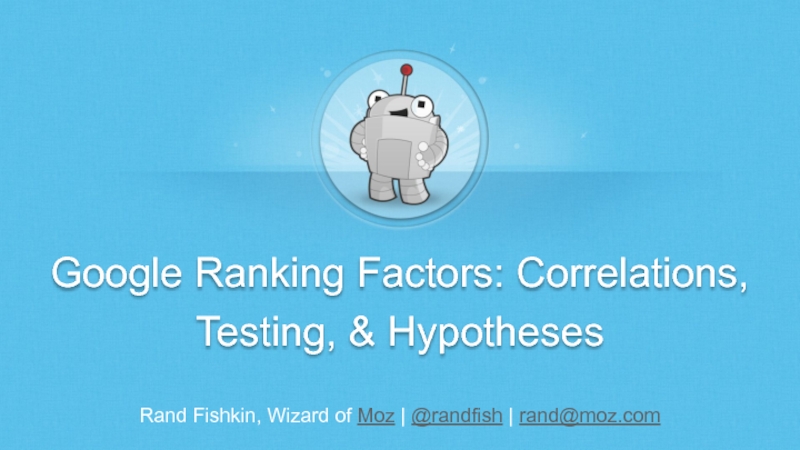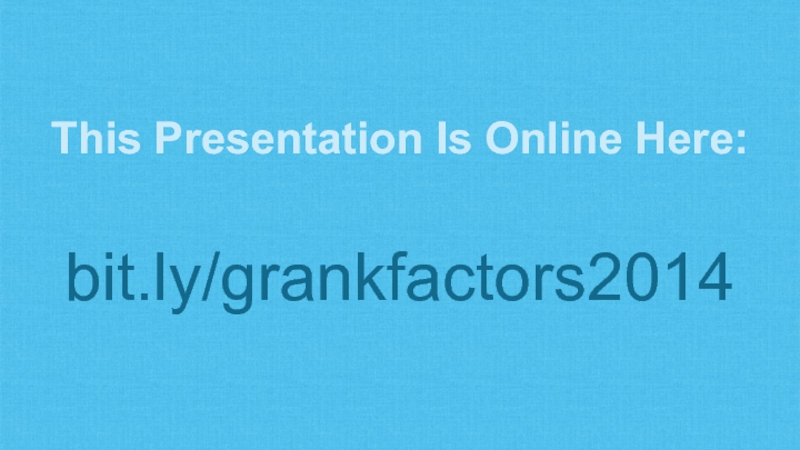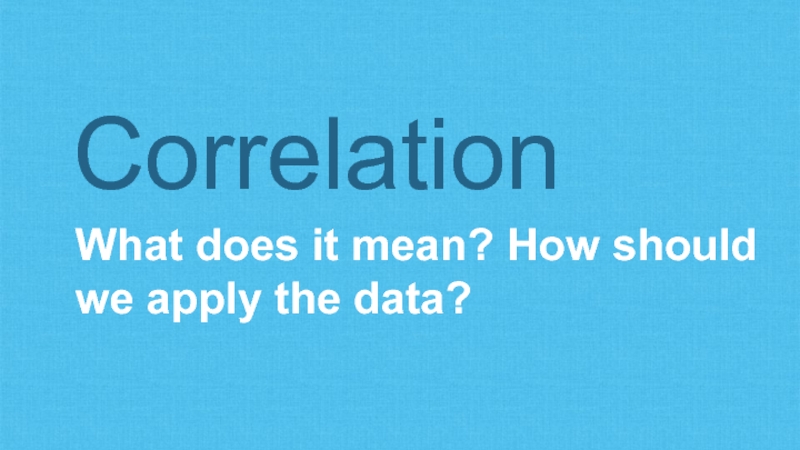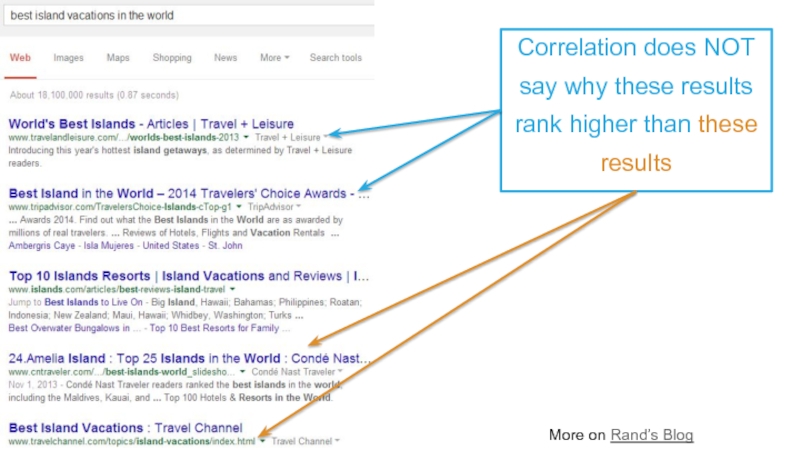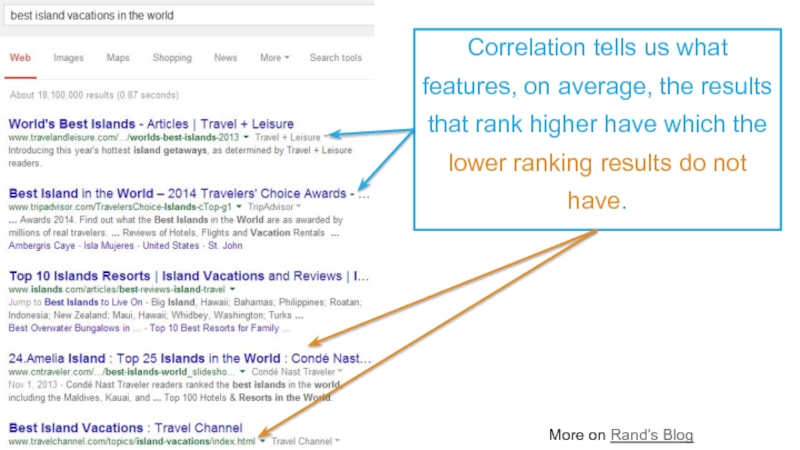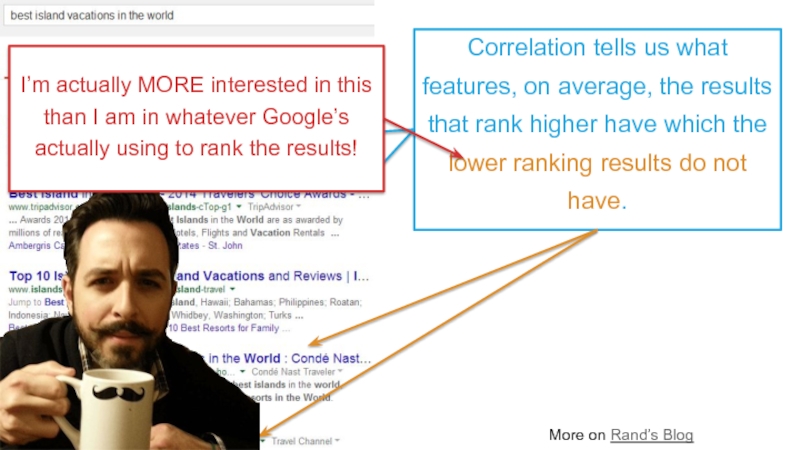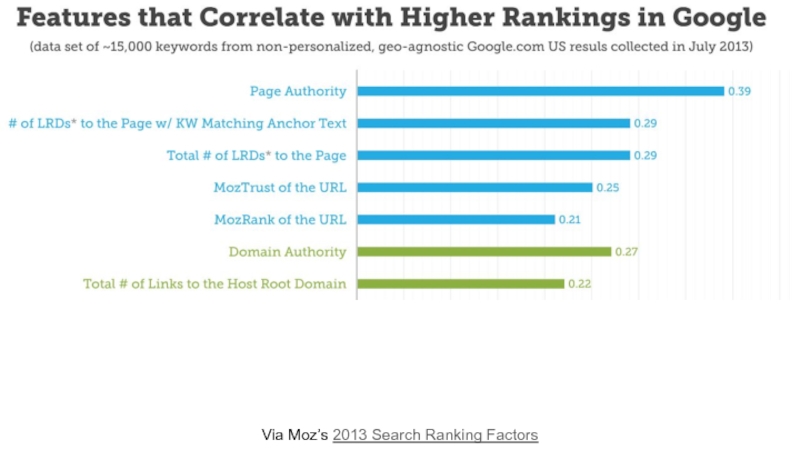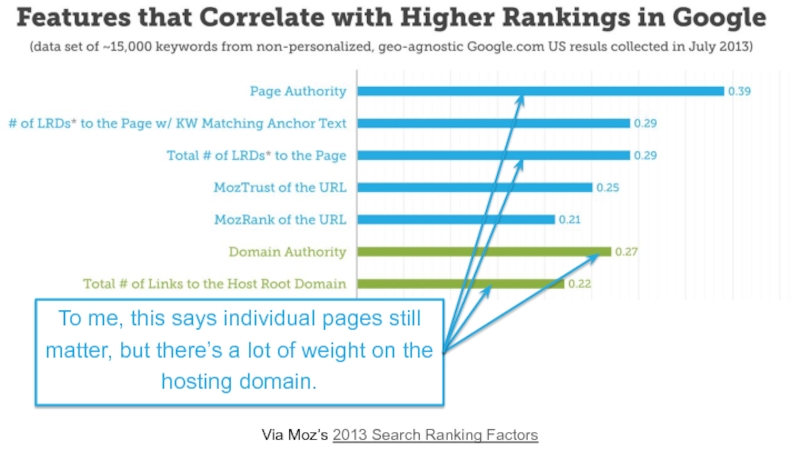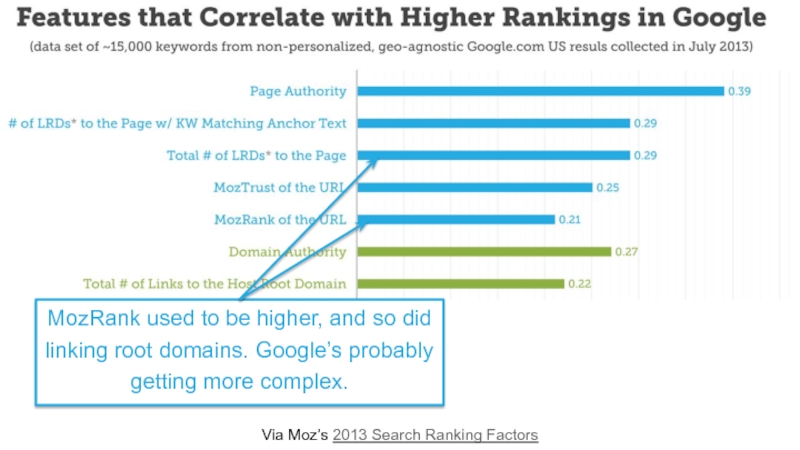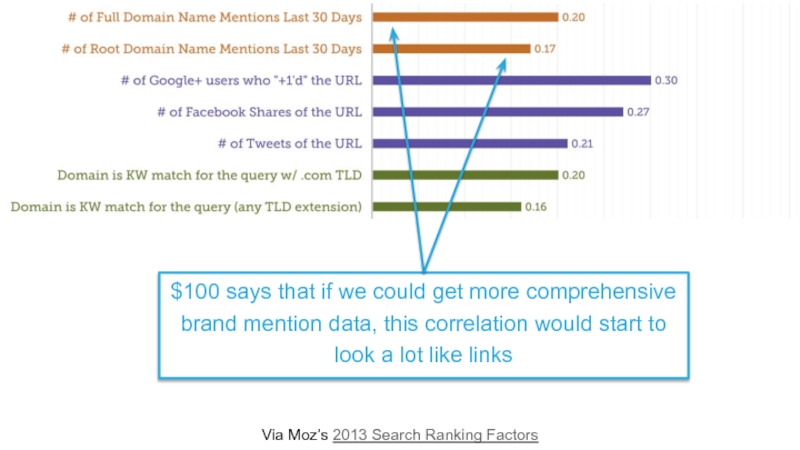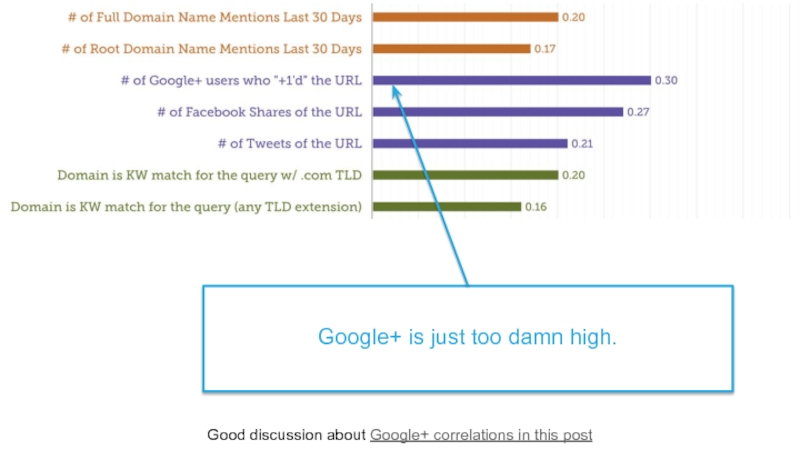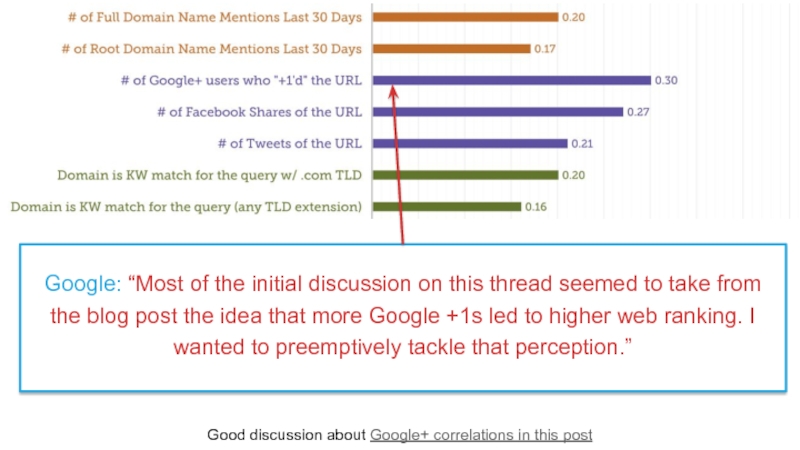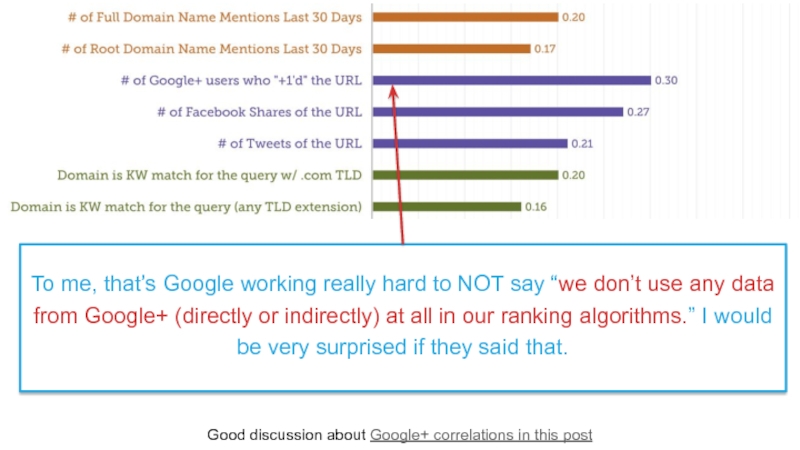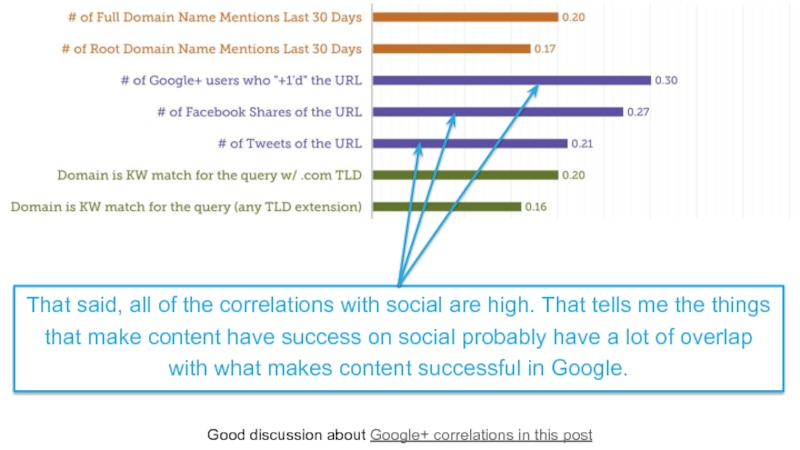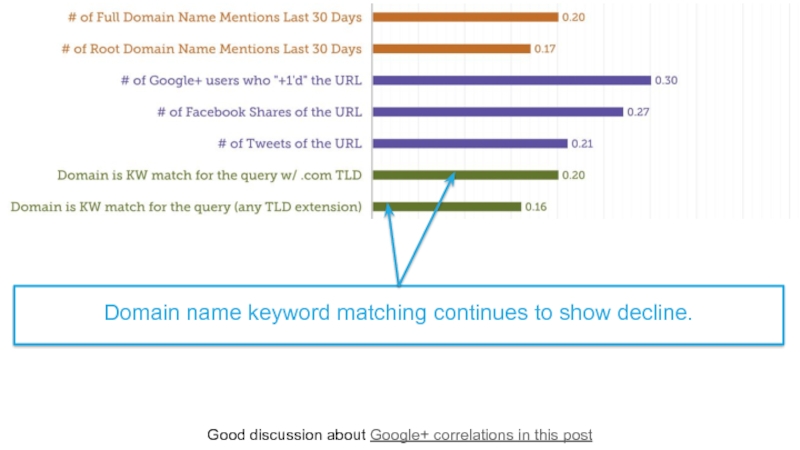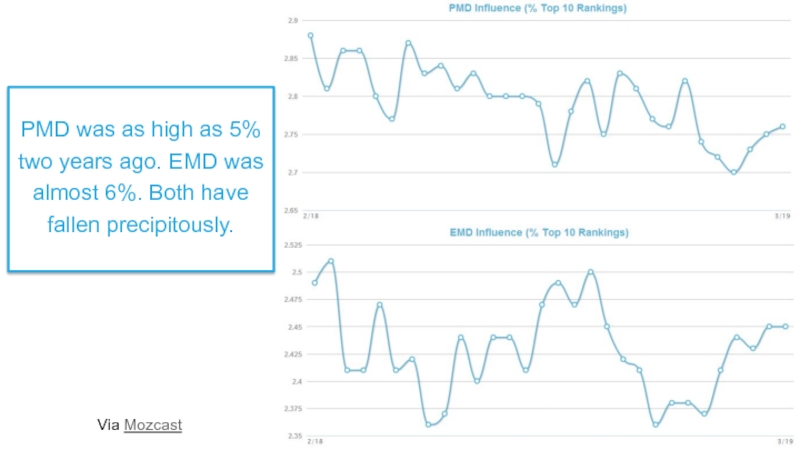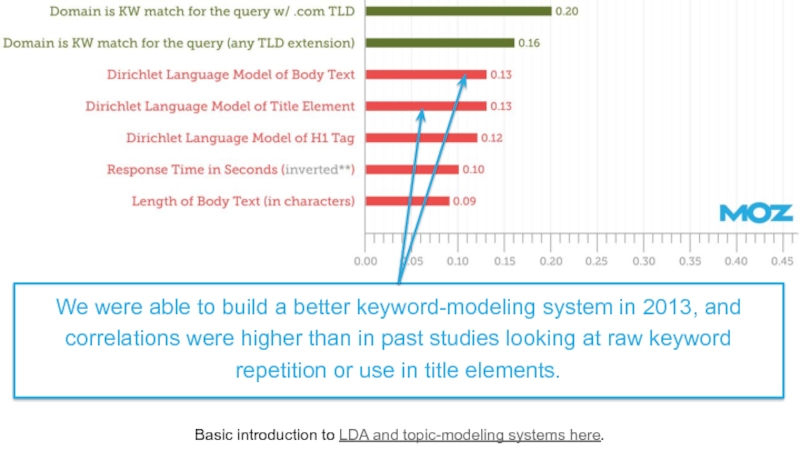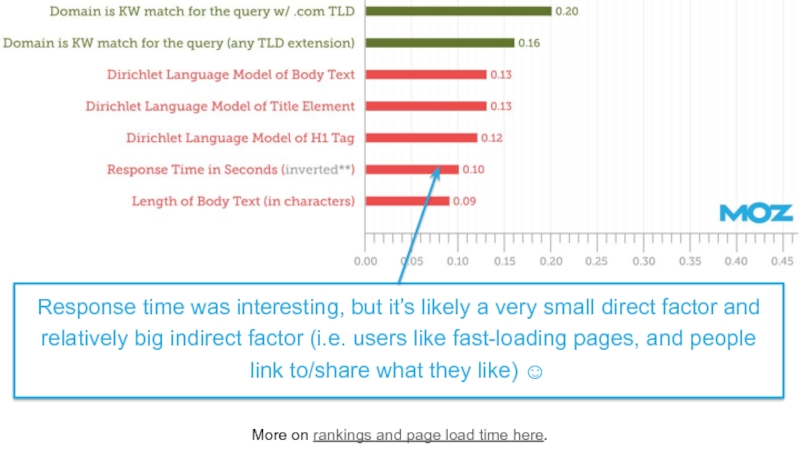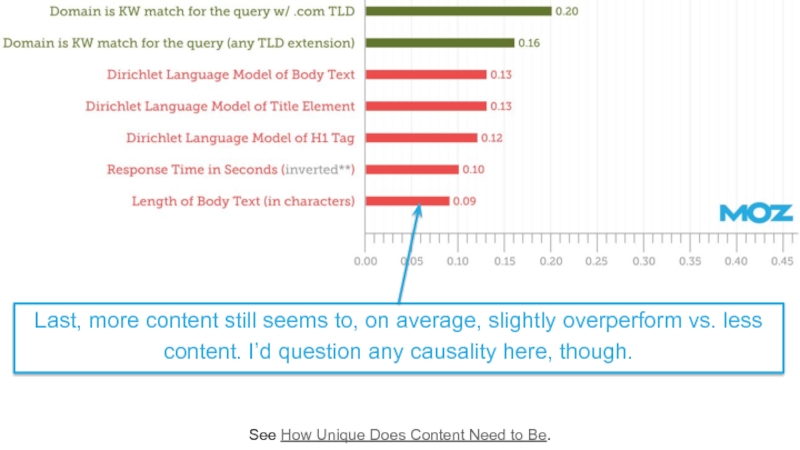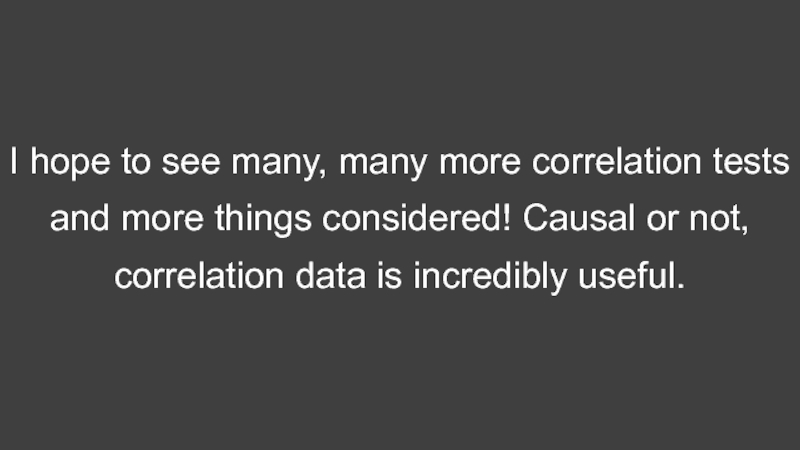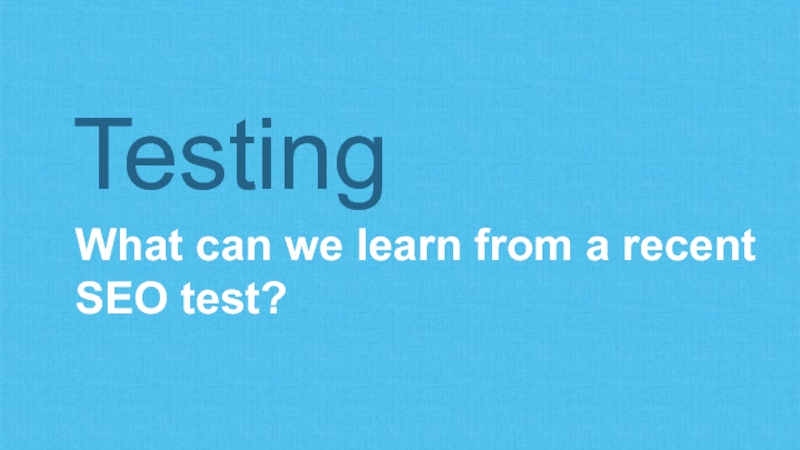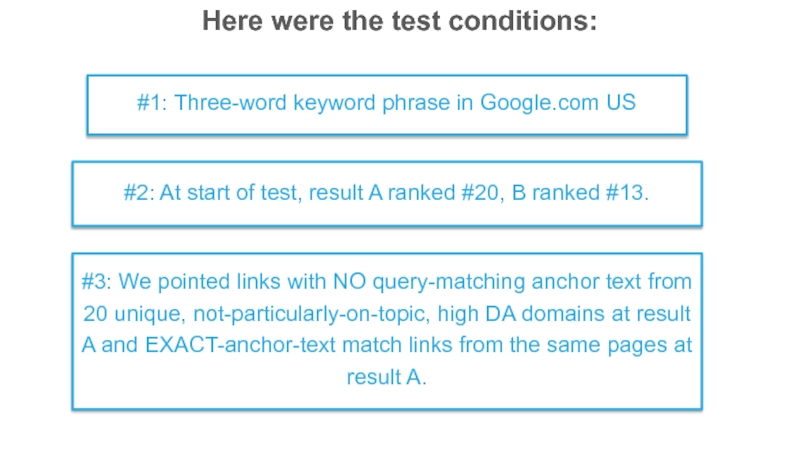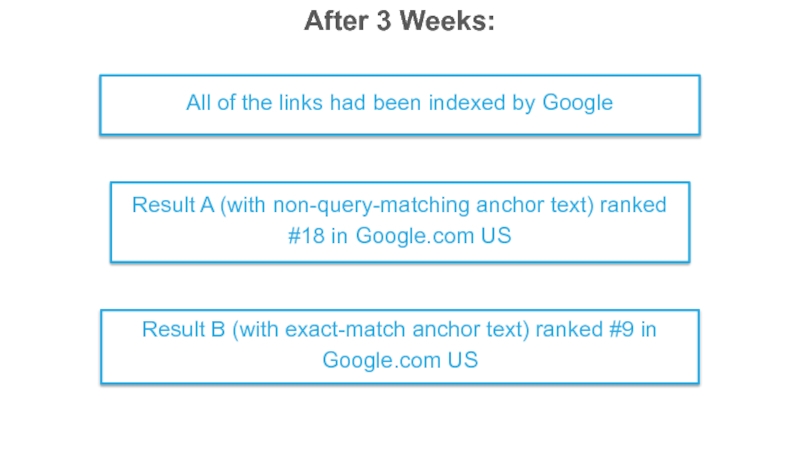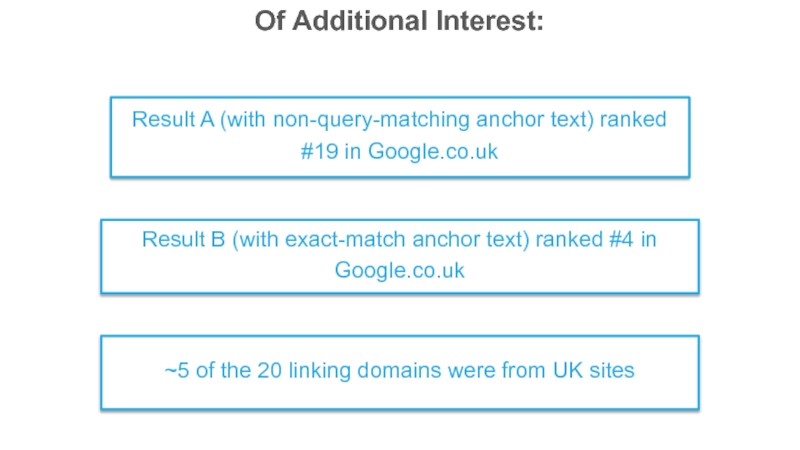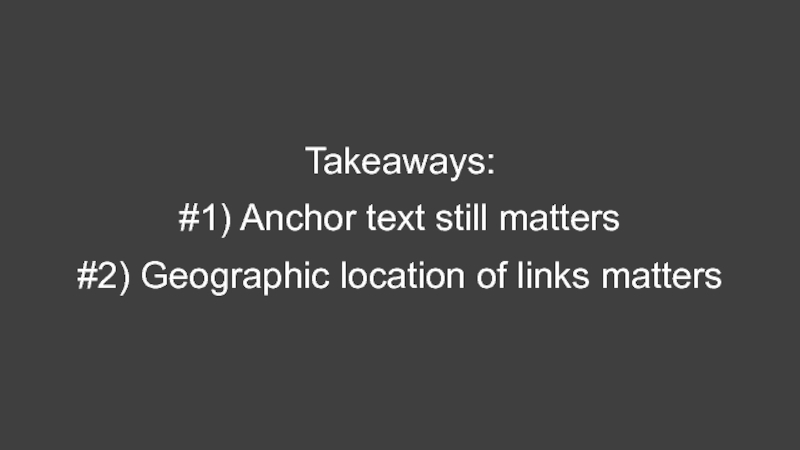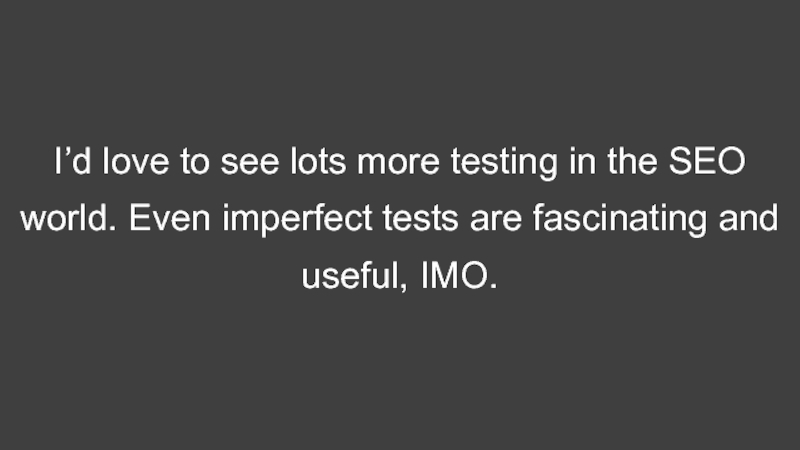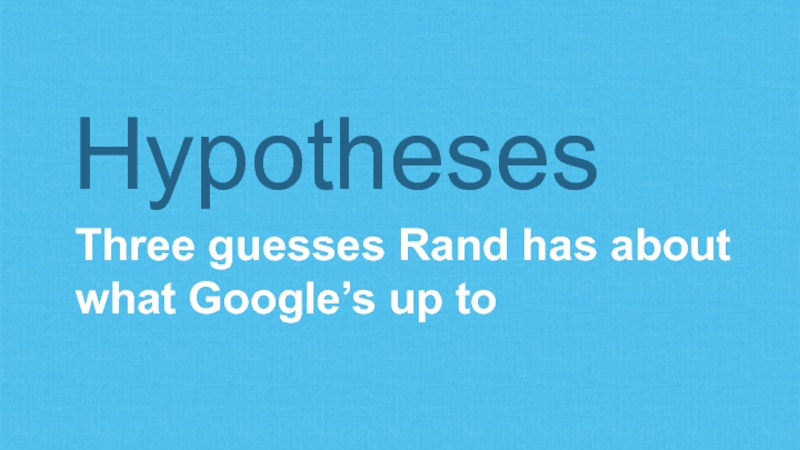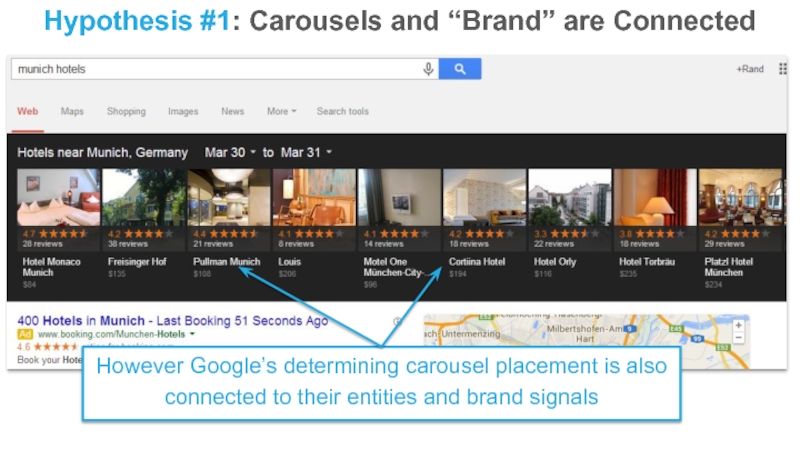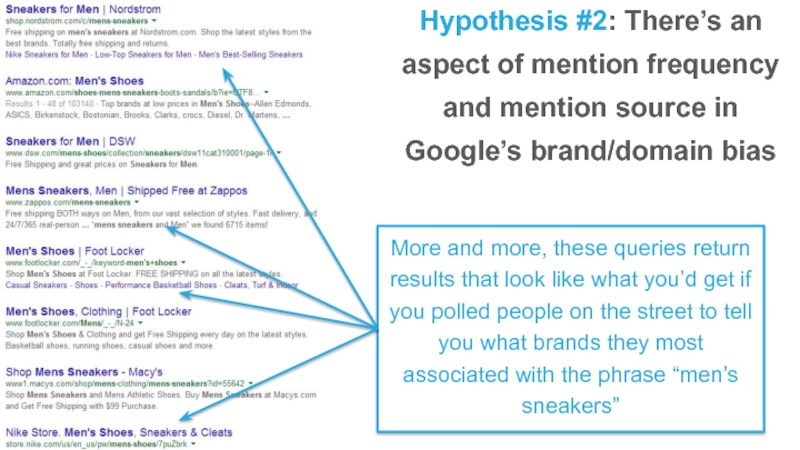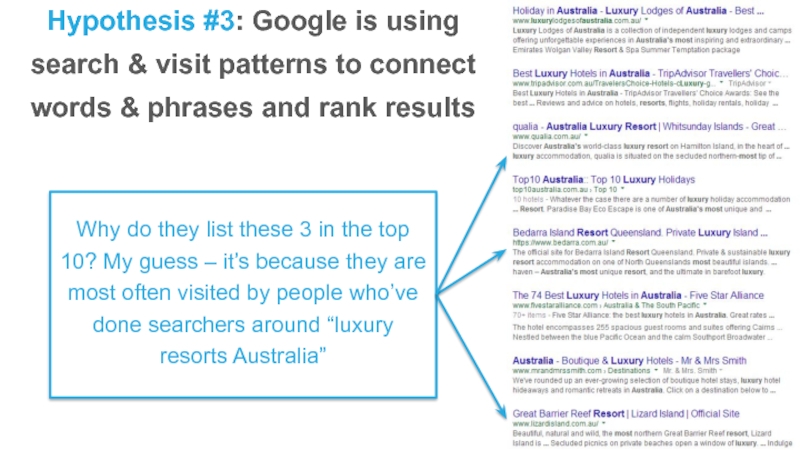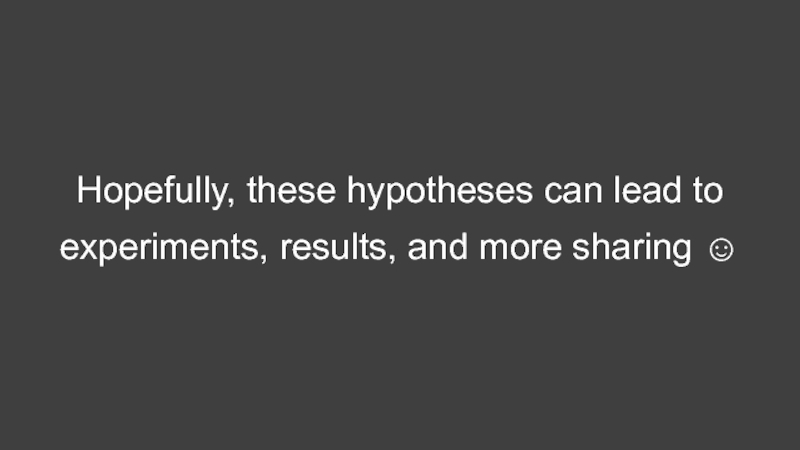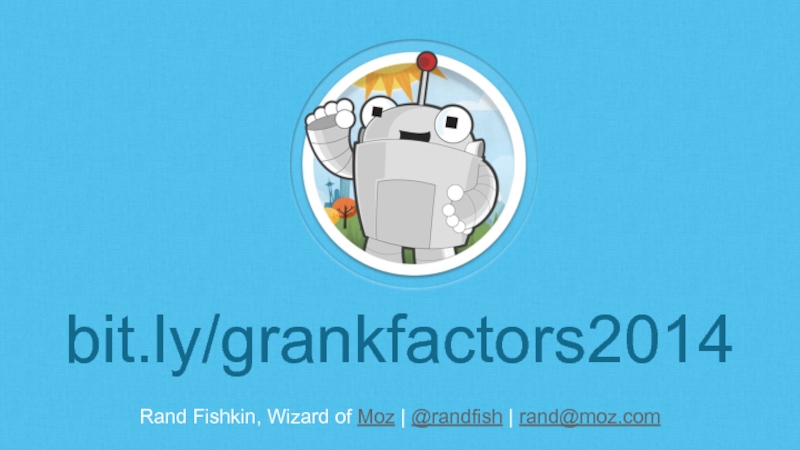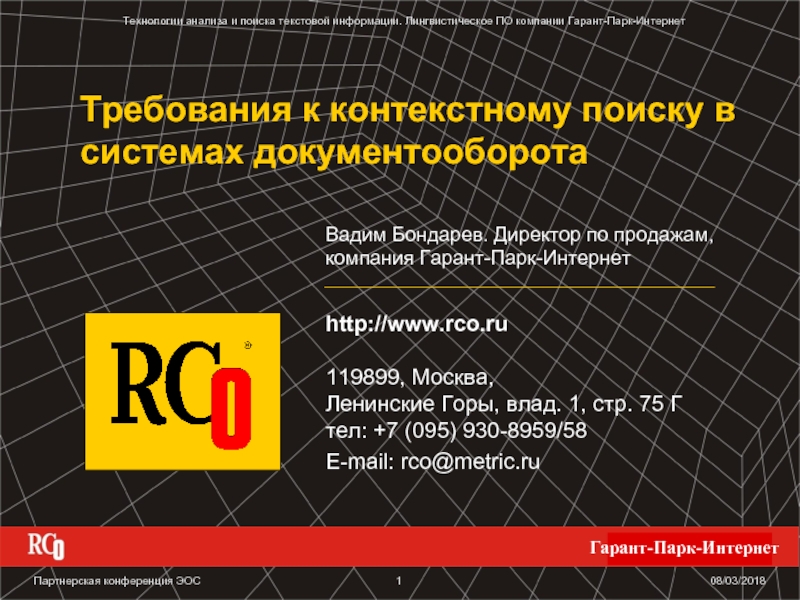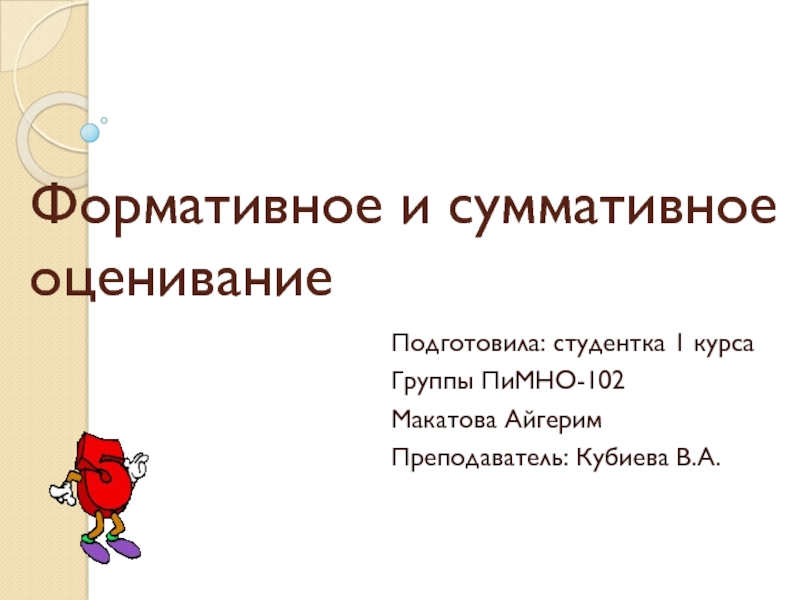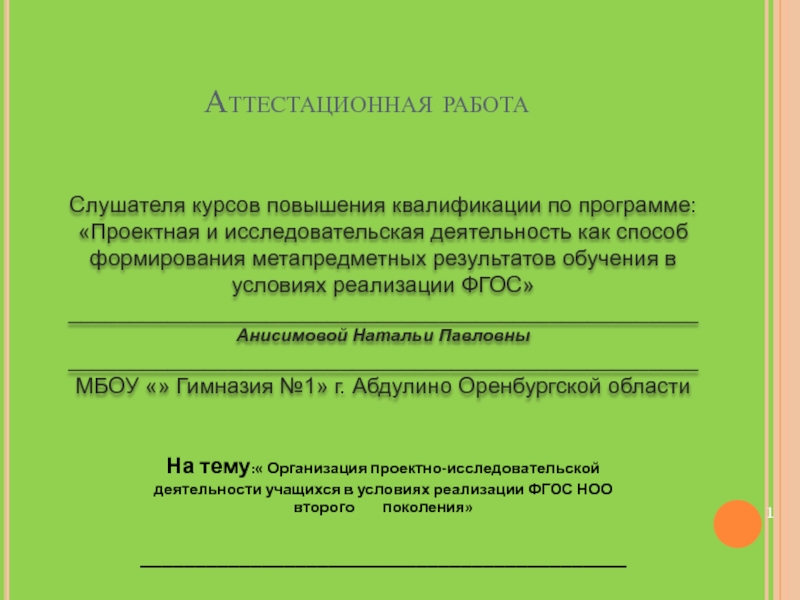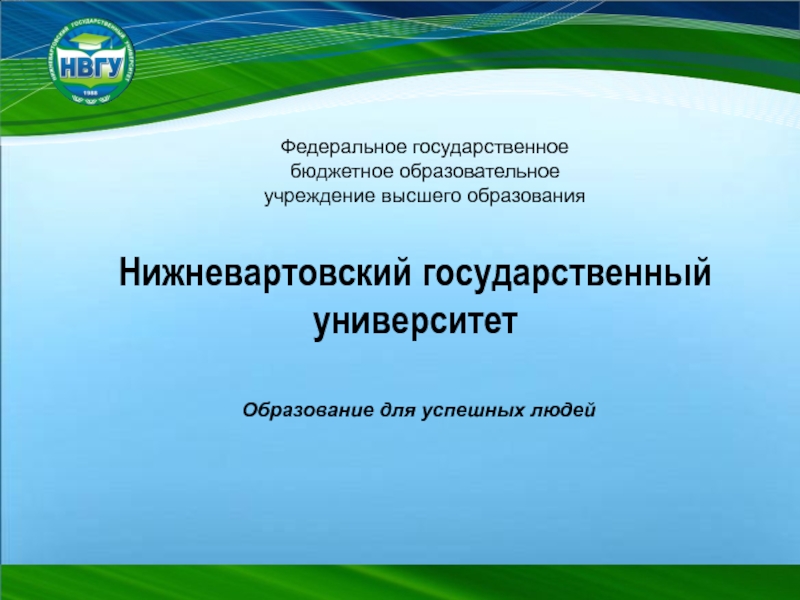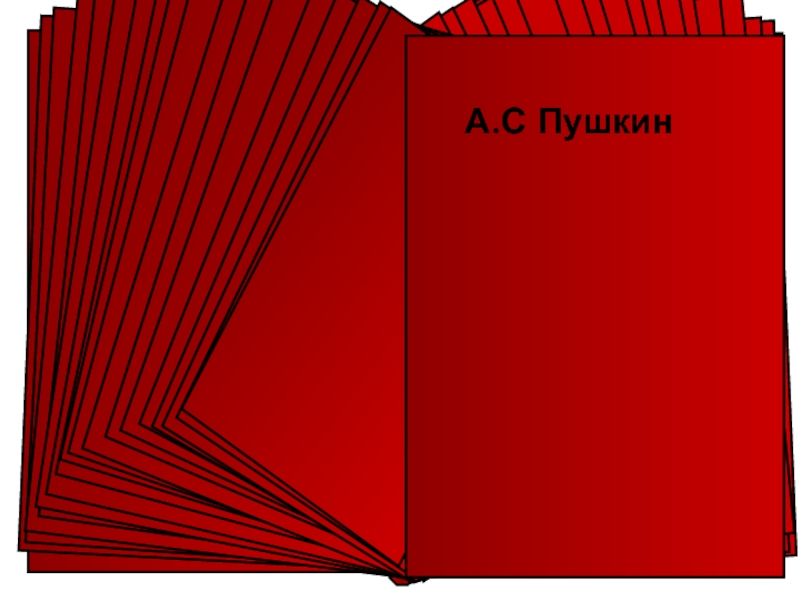- Главная
- Разное
- Дизайн
- Бизнес и предпринимательство
- Аналитика
- Образование
- Развлечения
- Красота и здоровье
- Финансы
- Государство
- Путешествия
- Спорт
- Недвижимость
- Армия
- Графика
- Культурология
- Еда и кулинария
- Лингвистика
- Английский язык
- Астрономия
- Алгебра
- Биология
- География
- Детские презентации
- Информатика
- История
- Литература
- Маркетинг
- Математика
- Медицина
- Менеджмент
- Музыка
- МХК
- Немецкий язык
- ОБЖ
- Обществознание
- Окружающий мир
- Педагогика
- Русский язык
- Технология
- Физика
- Философия
- Химия
- Шаблоны, картинки для презентаций
- Экология
- Экономика
- Юриспруденция
Google Ranking Factors: Correlations, Testing, & Hypotheses презентация
Содержание
- 1. Google Ranking Factors: Correlations, Testing, & Hypotheses
- 2. This Presentation Is Online Here: bit.ly/grankfactors2014
- 3. What does it mean? How should we apply the data? Correlation
- 4. Correlation does NOT say why these results
- 5. Correlation tells us what features, on average,
- 6. Correlation tells us what features, on average,
- 7. Via Moz’s 2013 Search Ranking Factors
- 8. Via Moz’s 2013 Search Ranking Factors To
- 9. Via Moz’s 2013 Search Ranking Factors MozRank
- 10. Via Moz’s 2013 Search Ranking Factors $100
- 11. Good discussion about Google+ correlations in this post Google+ is just too damn high.
- 12. Good discussion about Google+ correlations in this
- 13. Good discussion about Google+ correlations in this
- 14. Good discussion about Google+ correlations in this
- 15. Good discussion about Google+ correlations in this
- 16. Via Mozcast PMD was as high as
- 17. Basic introduction to LDA and topic-modeling systems
- 18. More on rankings and page load time
- 19. See How Unique Does Content Need to
- 20. I hope to see many, many
- 21. What can we learn from a recent SEO test? Testing
- 22. Hypothesis: It seems like Google is
- 23. Here were the test conditions: #1: Three-word
- 24. After 3 Weeks: All of the links
- 25. Of Additional Interest: Result B (with exact-match
- 26. Takeaways: #1) Anchor text still matters #2) Geographic location of links matters
- 27. I’d love to see lots more
- 28. Three guesses Rand has about what Google’s up to Hypotheses
- 29. Hypothesis #1: Carousels and “Brand” are Connected
- 30. Hypothesis #2: There’s an aspect of mention
- 31. Hypothesis #3: Google is using search &
- 32. Hopefully, these hypotheses can lead to experiments, results, and more sharing ☺
- 33. Rand Fishkin, Wizard of Moz | @randfish | rand@moz.com bit.ly/grankfactors2014
Слайд 1Rand Fishkin, Wizard of Moz | @randfish | rand@moz.com
Google Ranking
Слайд 5Correlation tells us what features, on average, the results that rank
More on Rand’s Blog
Слайд 6Correlation tells us what features, on average, the results that rank
More on Rand’s Blog
I’m actually MORE interested in this than I am in whatever Google’s actually using to rank the results!
Слайд 8Via Moz’s 2013 Search Ranking Factors
To me, this says individual pages
Слайд 9Via Moz’s 2013 Search Ranking Factors
MozRank used to be higher, and
Слайд 10Via Moz’s 2013 Search Ranking Factors
$100 says that if we could
Слайд 12Good discussion about Google+ correlations in this post
Google: “Most of the
Слайд 13Good discussion about Google+ correlations in this post
To me, that’s Google
Слайд 14Good discussion about Google+ correlations in this post
That said, all of
Слайд 15Good discussion about Google+ correlations in this post
Domain name keyword matching
Слайд 16Via Mozcast
PMD was as high as 5% two years ago. EMD
Слайд 17Basic introduction to LDA and topic-modeling systems here.
We were able to
Слайд 18More on rankings and page load time here.
Response time was interesting,
Слайд 19See How Unique Does Content Need to Be.
Last, more content still
Слайд 20
I hope to see many, many more correlation tests and more
Слайд 23Here were the test conditions:
#1: Three-word keyword phrase in Google.com US
#3:
#2: At start of test, result A ranked #20, B ranked #13.
Слайд 24After 3 Weeks:
All of the links had been indexed by Google
Result
Result A (with non-query-matching anchor text) ranked #18 in Google.com US
Слайд 25Of Additional Interest:
Result B (with exact-match anchor text) ranked #4 in
Result A (with non-query-matching anchor text) ranked #19 in Google.co.uk
~5 of the 20 linking domains were from UK sites
Слайд 27
I’d love to see lots more testing in the SEO world.
Слайд 29Hypothesis #1: Carousels and “Brand” are Connected
However Google’s determining carousel placement
Слайд 30Hypothesis #2: There’s an aspect of mention frequency and mention source
More and more, these queries return results that look like what you’d get if you polled people on the street to tell you what brands they most associated with the phrase “men’s sneakers”
Слайд 31Hypothesis #3: Google is using search & visit patterns to connect
Why do they list these 3 in the top 10? My guess – it’s because they are most often visited by people who’ve done searchers around “luxury resorts Australia”
